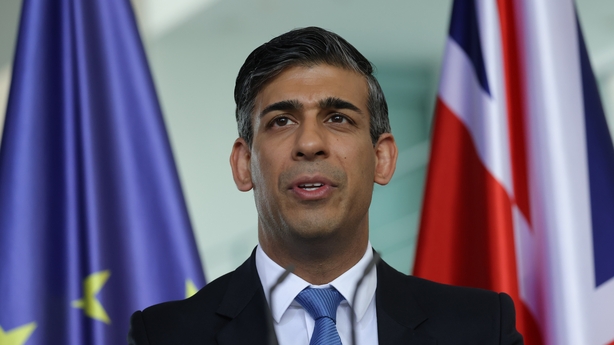New figures from the Department of Justice show that only 162 asylum seekers were returned to the UK over six years, when a previous reciprocal return agreement with the UK was in operation under the Dublin III Regulation.
Under the Regulation, the UK sent 154 asylum applicants here in return in the period from 2015 to 2020.
This means that the reciprocal arrangement led to a net change in asylum seeker numbers of just eight people.
This new data, released to Prime Time, comes as the Government brought newly amended legislation to a meeting of the Cabinet yesterday to allow asylum applicants who arrive here via Northern Ireland to be returned to the UK.
The Government had already acknowledged that no asylum seekers have been returned to the UK under a later legal arrangement agreed with the UK, post-Brexit in November 2020.
According to the Department of Justice, the operation of that arrangement was initially delayed due to the Covid-19 pandemic and was later legally challenged, culminating in a ruling against its lawfulness in March this year.
The High Court found that the arrangement was incompatible with EU law as it did not procedurally ensure that asylum seekers could not be returned to “a safe country”.
The low net effect on asylum seekers when the Dublin III Regulation was in operation casts doubt on the benefit of any return arrangement with the UK, even if it becomes operational.

At the moment, it is not likely to be workable for political reasons, as British Prime Minister Rishi Sunak said on Sunday: “We’re not going to accept returns from the EU via Ireland when the EU doesn’t accept returns back to France where illegal migrants are coming from.”
In a statement the Department of Justice said “These figures should be viewed in the context of the lower number of international protection applications received in those years, in addition to the widely discussed ineffectiveness of the Dublin III Regulation”.
The Government’s bid to introduce new legislation to make a new reciprocal arrangement workable in the future is also doubted by legal expert Assistant Professor Ciara Smyth from University of Galway, who specialises in refugee and immigration law.
“There’s no quick fix here” she says.
“The solution is to process these cases as quickly and fairly and expeditiously as possible in the substance. So rather than trying to look for another state that’s responsible for taking on the case, we need to be processing them ourselves in an expeditious way, which essentially means giving the asylum bodies the necessary resources to do this.
Dr Smyth says “It’s not that much longer to process a claim to conclusion, than to sort out which state is responsible and to try to deflect the asylum seeker back there.”
Source link
 TG4 TV PC to TV
TG4 TV PC to TV
